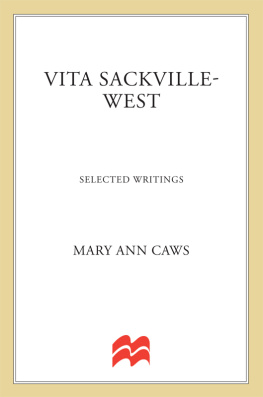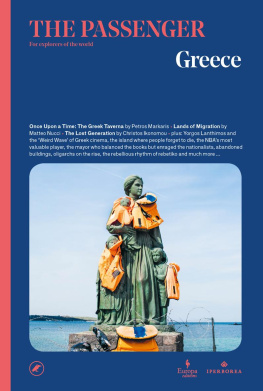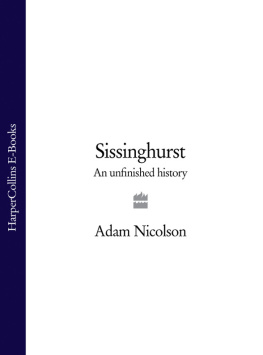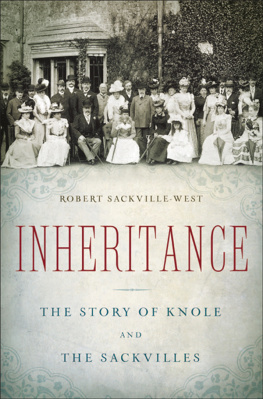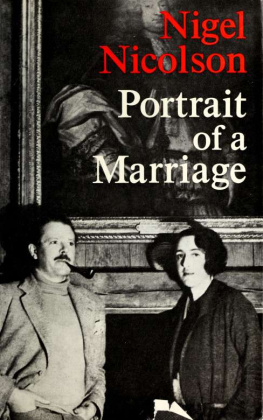Passenger to Teheran
by Vita Sackville-West
Subjects: Travelogue -- Travel & Tourism; Middle East
First published in 1926
This edition published by Reading Essentials
Victoria, BC Canada with branch offices in the Czech Republic and Germany
For.ullstein@gmail.com
All rights reserved. No part of this book may be reproduced or transmitted in any form or by any means, electronic or mechanical, including photocopying, recording, or by any information storage or retrieval system, except in the case of excerpts by a reviewer, who may quote brief passages in a review.
Passenger to Tehran
Vita Sackville-West

A PERSIAN SHEPHERD
CHAPTER I
INTRODUCTORY
Travel is the most private of pleasures. There is nogreater bore than the travel bore. We do not in theleast want to hear what he has seen in Hong-Kong.Not only do we not want to hear it verbally, but wedo not wantwe do not really want, not if we are toachieve a degree of honesty greater than that withinthe reach of most civilised beingsto hear it byletter either. Possibly this is because there issomething intrinsically wrong about letters. For one thingthey are not instantaneous. If I write home to-dayand say (as is actually the fact), "At this moment ofwriting I am sailing along the coast of Baluchistan",that is perfectly vivid for me, who have but to raisemy eyes from my paper to refresh them with thosepink cliffs in the morning light; but for the recipientof my letter, opening it in England at three weeks'remove, I am no longer coasting Baluchistan; I amdriving in a cab in Bagdad, or reading in a train, orasleep, or dead; the present tense has becomemeaningless. Nor is this the only trouble about letters.They do not arrive often enough. A letter which hasbeen passionately awaited should be immediatelysupplemented by another one, to counteract the feelingof flatness that comes upon us when the agonisingdelights of anticipation have been replaced by thecolder flood of fulfilment. Now when notes may besent by hand, as between lovers living in the sametown, this refinement of correspondence is easy toarrange, but when letters have to be transported bythe complex and altogether improbable mechanism offoreign mails (those bags lying heaped in the hold!),it is impossible. For weeks we have waited; everyday has dawned in hope (except Sunday, and that is aday to be blacked out of the calendar); it may havewaned in disappointment, but the morrow will soonbe here, and who knows what to-morrow's post maynot bring? Then at last it comes; is torn open;devoured;and all is over. It is gone in a flash, andit has not sufficed to feed our hunger. It has told useither too much or too little. For a letter, by itsarrival, defrauds us of a whole secret region of ourexistence, the only region indeed in which the truepleasure of life may be tasted, the region ofimagination, creative and protean, the clouds and beautifulshapes of whose heaven are destroyed by the wind ofreality. For observe, that to hope for Paradise is tolive in Paradise, a very different thing from actuallygetting there.
The poor letter is not so much in itself to blame,andthere is, I think, a peculiar pathos in the thoughtof the writer of that letter, taking pains, pouring onto his page so much desire to please, so human a wishto communicate something of himself, in his exile,notso much to blame in the inadequacy of its content,as in the fact that it has committed the error of arriving,of turning up. "Le rle d'une femme," said anastute Frenchman once, "est non de se donner, maisde se laisser dsirer."
The art of reading letters, too, is at least as greatas the art of writing them, and possessed by asfew. The reader's co-operation is essential. There isalways more to be extracted from a letter than at firstsight appears, as indeed is true of all good literature,and letters certainly deserve to be approached as goodliterature, for they share this with good literature:that they are made out of the intimate experience ofthe writer, begotten of something personally endured.But it is not every one who knows how to read. Manya word, wrung out of the pen, many an indication,gets thrown on to the dust-heap because it stood alone,unamplified and unsupported. Only the ideal readerappreciates the poignancy of understatement.
Furthermore, to letters of travel attaches a specialdisability. The link between two persons must indeedbe close before one of them is really eager to visualisethe background against which the other moves; tosee with his eyes, hear with his ears, be transplantedto the heat of his plains or the rigours of his mountains.If this link exist, well and good; and certainly it is afine and delicate form of mental exercise to reconstructa landscape, to capture so subtle a thing as theatmospheric significance of a place, from the indicationsgiven; rather, reconstruction and capture are wordstoo gross for the lovelier unreality that emerges, acountry wholly of the invention, like those roseatelandscapes of the romantic Italian painters, but it is anart in itself, a luxury for the idle and speculative,repaidwith a freakish twistwhen later on we tread withour mortal feet that place which for so long served asthe imaginary country of our wanderings (for nothingis harder than to re-evoke a place as we knew it beforewe went there, so tenuous was the fabric of ourweavings, so swiftly dispelled, for all its apparentsolidity and its detail; as a place that we knew inchildhood, now wrongly remembered in colour andsize, under the fresh but not necessarily truerimpression of our actual beholding). But if this stimulusbe absent, then it is, let us confess it, with a wearyconscientiousness that we read the descriptive passagesof our nomad friends. Even those letters which werenot addressed to us, nor to any of our generation, theletters of Beckford, let us say, or of Lady MaryMontagu, we read less for the sake of the countriesdescribed than for their historical curiosity (in itselfan adventitious thing), or as we read a diary, for thestrokes of vigour, humour, or downrightness whichunconsciously build up the personality of the writer."As a diary," in fact, is no bad comparison, for in adiary, even though compiled by the most illiterate ofpens, that which stands out, in the ultimate andcumulative sense, is its convincingness, investing, byits bald, gradual, and uncompromising method, eventhe dullest record with the indisputable effect oftruth.
There would seem, then, to be something definitelywrong about all letters of travel, and even about booksof travel, since the letters of another age, collected intolibrary editions, may fairly claim to rank as booksrather than as mere correspondence. There wouldseem, going a step further, to be something wrongabout travel itself. Of what use is it, if we maycommunicate our experience neither verbally nor onpaper? And the wish to communicate our experienceis one of the most natural, though not one of the mostestimable, of human weaknesses. Not one of themost estimable, for it is sthetically unprofitable(since a pleasure shared is a pleasure halved), and, asan attempt, in the last resort fallacious (since noexperience can ever be truly communicated, and theonly version we can hope to get through to anotherperson but a garbled, deceptive account of what reallyhappened to us). Travel is in sad case. It isuncomfortable, it is expensive; it is a source of annoyanceto our friends, and of loneliness to ourselves. Ofcourse to the true solitary this last is a greatrecommendation; but loneliness and solitude are not evenfirst cousins. The true solitary will savour hisapartness; he will feel that he is himself only when he isalone; when he is in company he will feel that heperjures himself, prostitutes himself to the exactionsof others; he will feel that time spent in company istime lost; he will be conscious only of his impatienceto get back to his true life. Alone,for although hemay put on carpet slippers the furnishings of hismind are fastidious in the extreme,he will draw abook from his shelf, or from his store of images sometoy that delights him, rolling it round in his mind asthe gourmet a grape in his mouth, tasting the onesweet escaped drop of its juice before he bursts it intoits full flood against his palate.
Next page



